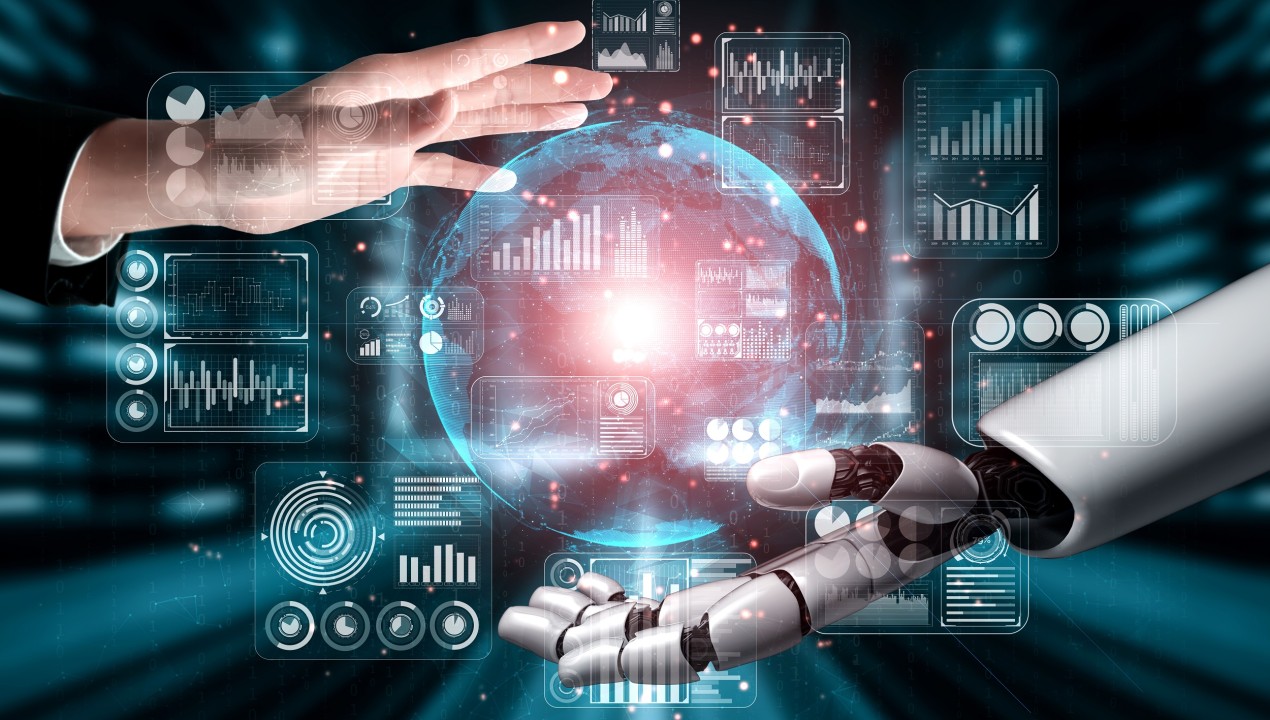Tech
Empowering Internet Security with Advanced AI Technology

Hello guys, In this article, we’ll look at how artificial intelligence (AI) is changing the landscape of internet security. As our digital world evolves and threats become more sophisticated, the need for robust and proactive security measures becomes increasingly important. This is where artificial intelligence comes in. Let’s take a look and see what exciting possibilities AI brings to the forefront of our digital defense.
How Can AI Help Improve Internet Security
By leveraging its advanced capabilities in threat detection, analysis, and response, Artificial Intelligence has the potential to significantly improve internet security. AI algorithms can quickly identify patterns and anomalies that may indicate cyber threats or attacks due to their ability to process massive amounts of data in real-time. Organizations can detect and mitigate security breaches more effectively with this proactive approach.
Furthermore, AI-powered authentication systems can improve access controls by using biometrics, behavior analysis, and anomaly detection to verify user identities and prevent unauthorized access. Furthermore, AI-driven predictive analytics can identify potential vulnerabilities and predict attack vectors, allowing security teams to address and patch flaws in their networks in advance.
What Cyber Security Challenges Can be Solved Using AI
AI can help address several critical cybersecurity challenges, including:
- Advanced Threat Detection: AI can analyze massive amounts of data in real-time, identify patterns, and detect anomalies, allowing organizations to identify and respond to advanced threats more effectively.
- Behavioral Analysis: AI algorithms can monitor user behavior and network activity, detecting deviations from normal patterns that may indicate malicious intent or insider threats.
- Malware Detection: By analyzing their characteristics and behavior, AI-based systems can detect and classify new and evolving malware strains, assisting in mitigating the risks associated with emerging threats.
- Fraud Prevention: AI can identify and prevent fraudulent activities such as identity theft, payment fraud, and account takeovers by analyzing user behavior, transaction patterns, and historical data.
- Automated Incident Response: AI-powered systems can respond to security incidents automatically, isolating affected systems, mitigating the impact, and initiating remediation actions, reducing response times and potential damage.
- Vulnerability Management: AI can help organizations identify vulnerabilities in networks and systems by scanning for misconfigurations, weak points, or outdated software, allowing them to address these issues proactively and reduce the attack surface.
- User Authentication: AI-powered authentication methods, such as biometrics or behavioral biometrics, can strengthen user verification, reducing the risk of unauthorized access or credential theft.
- Threat Intelligence: AI can process and analyze large volumes of threat intelligence data from various sources, providing security teams with actionable insights and assisting them in staying ahead of emerging threats.
- Security Operations Optimization: AI can automate repetitive tasks, such as log analysis, security event correlation, and incident response, freeing up security professionals to focus on more strategic and complex security challenges.
- Insider Threat Detection: AI algorithms can identify suspicious behaviors, unusual data access patterns, or data exfiltration attempts, helping organizations detect and mitigate insider threats more effectively.
The Future of AI in Cybersecurity
AI’s future in cybersecurity has enormous potential to transform how organizations defend against evolving cyber threats. AI algorithms will become more sophisticated, relying on advanced machine learning and deep learning techniques to detect and respond to threats in real time with greater accuracy. The use of AI-powered autonomous security systems will allow organizations to rapidly identify, contain, and neutralize threats without the need for human intervention, resulting in significantly shorter response times.
Furthermore, AI will play an important role in predictive analytics, proactively identifying vulnerabilities and predicting attack vectors, allowing organizations to fortify their defenses and stay one step ahead of cybercriminals. The future of AI in cybersecurity will involve a harmonious collaboration between human expertise and AI-driven technologies, providing enhanced protection against sophisticated and persistent cyber threats as the cybersecurity landscape evolves.
Summary:
Advanced artificial intelligence technology improves internet security by allowing for more effective threat detection, faster incident response, and proactive vulnerability management. Artificial intelligence algorithms can analyze massive amounts of data in real time, detecting patterns, anomalies, and potential threats. AI can respond to security incidents autonomously, isolating affected systems and initiating remediation actions with autonomous security systems. AI-powered predictive analytics assists organizations in identifying vulnerabilities and predicting attack vectors, allowing them to address weaknesses proactively. Overall, advanced AI technology improves internet security by augmenting human capabilities, increasing detection rates, and shortening response times to protect against evolving cyber threats.
-
Blog1 year ago
MyCSULB: Login to CSULB Student and Employee Portal – MyCSULB 2023
-
Android App3 years ago
Cqatest App What is It
-
Android1 year ago
What Is content://com.android.browser.home/ All About in 2023? Set Up content com android browser home
-
Software2 years ago
A Guide For Better Cybersecurity & Data Protection For Your Devices
-
Latest News2 years ago
Soap2day Similar Sites And Alternatives To Watch Free Movies
-
Android2 years ago
What is OMACP And How To Remove It? Easy Guide OMACP 2022
-
Android3 years ago
What is org.codeaurora.snapcam?
-
Business2 years ago
Know Your Business (KYB) Process – Critical Component For Partnerships





















